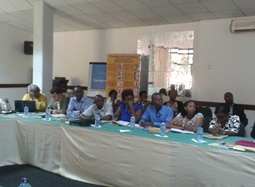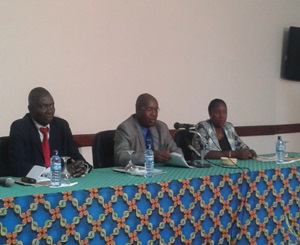In June 2013, the Government of the Republic of Burundi and UNFPA agreed to conduct a mid-term review of the 2010-2014 country program; this exercise provided an opportunity for stakeholders to align the 7th Country Programme with the new national priorities and those of UNFPA.
Indeed, after the signing of the PRSP II, the Government and the UN System agreed to revise the UNDAF 2010-2014 to align it with the new national priorities; which led all ongoing programs to align with the revised 2012-2016 UNDAF. In December 2013 and in conformity with UNDG procedures, the Country Office submitted a request for extension to the Executive Board (EXEBO), through the Regional Office for analysis and approval. In June 2014, during its annual session, the EXEBO fully endorsed the request for extension for 2 years (2015-2016).

The Ministry of Foreign Affairs and International Cooperation, in close collaboration with UNFPA, launched the process of developing the action plan of the country program for the period 2015-2016. From November 20 to 21 implementing partners of the program and the technical and financial partners met to discuss the results achieved, challenges and lessons learned since the beginning of the program.
At the end of this workshop, the consensus focused on the following national priorities; (a) the intensification of quality family planning services to meet the needs of women, men, teenagers and young people; (b) improving the socio-cultural environment to reduce religious barriers to access to reproductive health services; (c) increase access to maternal health services, including prevention and treatment of obstetric fistula; and (d) improving the reproductive health of adolescents and young people through comprehensive sex education and family-friendly services.
After consultations with all stakeholders, including government partners to implement the program, civil society and technical and financial partners, the CPAP 2015-2016 was validated on 09 / 12/2014 at a workshop which brought together representatives of government structures, primarily the Ministry responsible for the overall coordination of the program ( the Ministry of Foreign Affairs and International Cooperation) , the sectoral Ministries as well as civil society organizations, financial and technical partners. The CPAP 2015-2016 that has been validated is the result of a participatory and inclusive approach. Priorities and proposed implementation strategies are a response to the specific needs of women and youth in Burundi (said Ambassador Zachariah Gahutu, Director General of International Organizations, Ministry of Foreign Affairs and International Cooperation.


